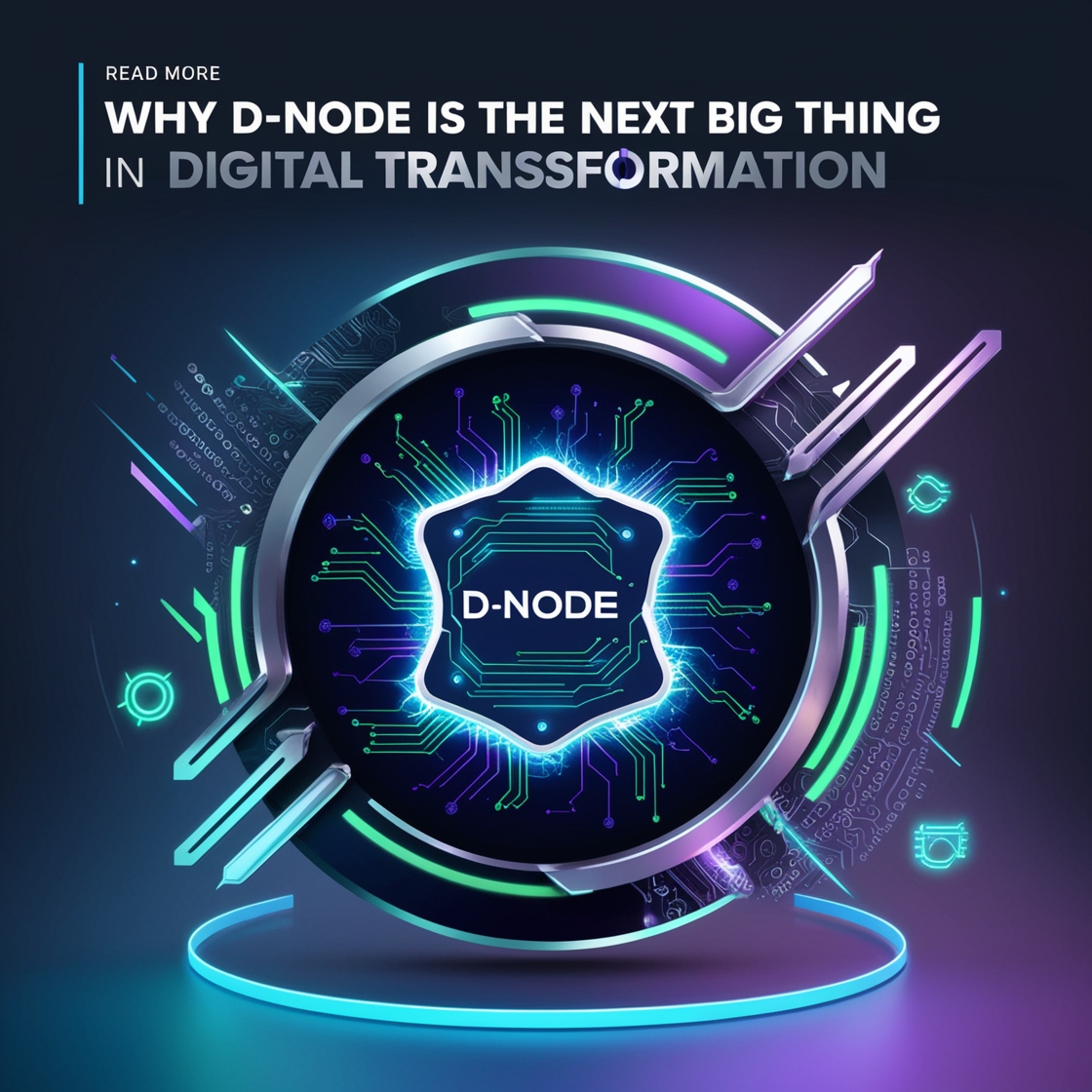D-Node represents a revolutionary approach to digital transformation. It integrates decentralized nodes, enabling businesses to streamline their operations while enhancing data security and scalability. At its core, D-Node leverages the power of distributed ledger technology, making it a vital tool for businesses striving to innovate and adapt in a rapidly changing digital landscape.
The Evolution of Digital Transformation Technologies
Over the past decade, digital transformation has evolved significantly. From cloud computing to big data analytics, companies have had to adapt to survive. D-Node is the next evolution, combining the strengths of these technologies while addressing their limitations.
Key Components of D-Node
D-Node comprises several critical components:
- Distributed Ledger Technology (DLT): Ensures transparency and security in transactions.
- Smart Contracts: Automate processes, reducing the need for intermediaries.
- API Integrations: Allow seamless communication between different systems and applications.
The Need for D-Node in Today’s Business Environment
Challenges of Traditional Systems
Many businesses still rely on traditional systems that are often inflexible, slow, and prone to errors. These legacy systems can create bottlenecks, leading to missed opportunities and frustrated customers.
Rising Customer Expectations
Today’s consumers demand fast, personalized experiences. Businesses must respond quickly to market changes, which traditional systems often hinder. D-Node offers the agility required to meet these evolving expectations.
The Shift Toward Decentralization
As more organizations embrace decentralized models, D-Node provides a framework for achieving this transition. By decentralizing operations, businesses can enhance efficiency and resilience.
Benefits of D-Node
Enhanced Scalability
D-Node allows businesses to scale their operations effortlessly. Whether expanding to new markets or launching new products, D-Node’s architecture supports growth without significant upfront investments.
Improved Data Security
With D-Node’s decentralized nature, data is less vulnerable to breaches. Each node operates independently, reducing the risk of a single point of failure.
Cost Efficiency
Implementing D-Node can lead to significant cost savings. By automating processes and reducing the need for intermediaries, businesses can allocate resources more effectively.
Real-time Analytics and Insights
D-Node enables real-time data processing, allowing businesses to gain insights quickly. This capability fosters informed decision-making and agile responses to market shifts.
D-Node vs. Traditional Systems
Speed of Deployment
D-Node systems can be deployed more rapidly than traditional systems, allowing businesses to adapt to changes in the marketplace swiftly.
Flexibility and Adaptability
D-Node’s modular design means it can easily adapt to evolving business needs, unlike rigid traditional systems that require extensive modifications.
User Experience
By enhancing user experiences through seamless integrations and automated processes, D-Node outshines traditional systems that often lead to customer frustration.
Case Studies: Success Stories with D-Node
Company A: Streamlining Operations
Company A adopted D-Node to streamline its supply chain. By decentralizing its processes, it reduced operational delays and improved collaboration among suppliers.
Company B: Enhancing Customer Engagement
Company B utilized D-Node to create personalized customer experiences. Leveraging real-time data, they tailored offerings to individual preferences, resulting in increased customer satisfaction.
Company C: Driving Innovation
Company C integrated D-Node into its R&D processes, allowing for faster experimentation and innovation. The result was a more dynamic approach to product development.
Implementing D-Node in Your Organization
Assessing Your Current Infrastructure
Before implementing D-Node, it’s crucial to evaluate your existing systems. Identify pain points and areas for improvement to ensure a smooth transition.
Training and Onboarding Employees
Investing in training is essential for successful implementation. Equip your team with the necessary skills to leverage D-Node effectively.
Continuous Improvement and Adaptation
The digital landscape is constantly evolving. Businesses must commit to continuous improvement to stay ahead of the competition, making adjustments as needed.
Future Trends in Digital Transformation
The Role of AI and Machine Learning
AI and machine learning will play a significant role in enhancing D-Node’s capabilities, providing businesses with predictive insights and automation.
Integrating IoT with D-Node
As IoT devices proliferate, integrating them with D-Node can create smarter systems that enhance operational efficiency and customer engagement.
Sustainability and Digital Transformation
D-Node can contribute to sustainable practices by optimizing resource usage and minimizing waste, aligning with the growing demand for eco-friendly solutions.
Conclusion
D-Node is undoubtedly paving the way for the next generation of digital transformation. Its ability to enhance scalability, improve data security, and foster cost efficiency makes it an essential tool for businesses looking to thrive in today’s competitive landscape. As organizations continue to embrace digital transformation, D-Node will be at the forefront, enabling innovation and adaptability.
FAQs
What industries can benefit from D-Node?
D-Node can benefit various industries, including finance, healthcare, supply chain, and retail, by enhancing operational efficiency and customer experiences.
How does D-Node ensure data security?
D-Node employs decentralized architecture, reducing the risk of breaches by ensuring that data is not stored in a single location, thus enhancing security.
Is D-Node suitable for small businesses?
Yes, D-Node is scalable and can be tailored to meet the specific needs of small businesses, making it an excellent choice for companies of all sizes.
What skills are required to implement D-Node?
Implementing D-Node typically requires skills in data analysis, system integration, and understanding of blockchain technology.
How can D-Node improve customer experience?
D-Node allows businesses to leverage real-time data for personalized offerings, enhancing customer engagement and satisfaction.
